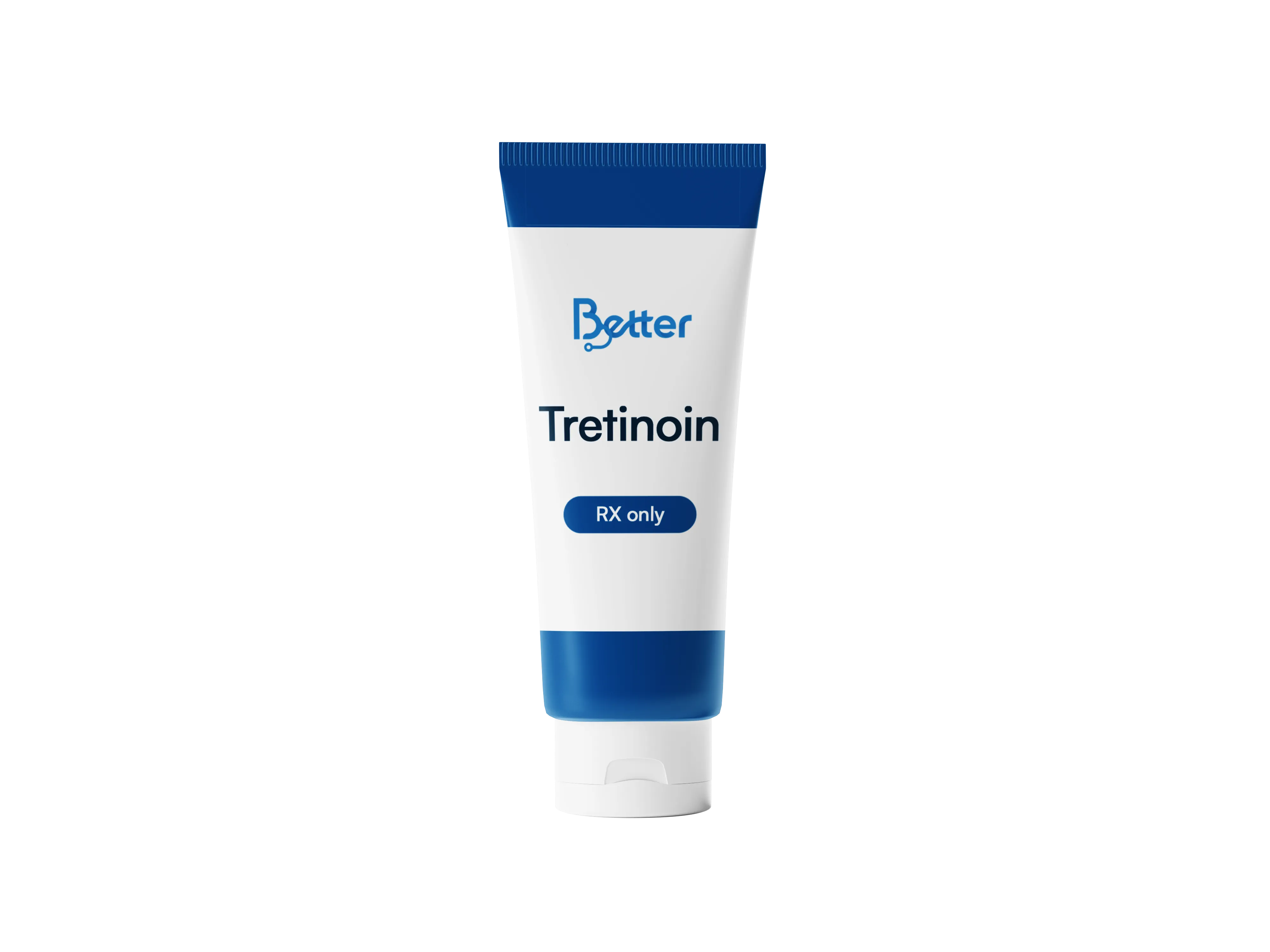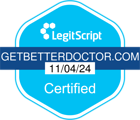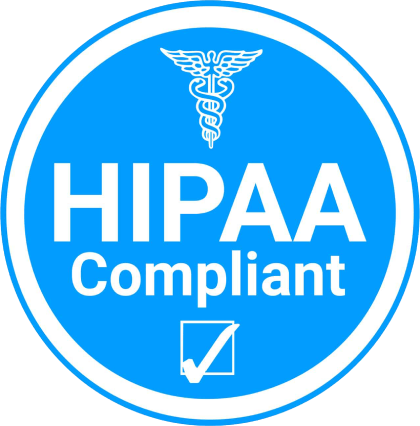Tretinoin Cream
- The gold standard for acne treatment
- Reduce wrinkles and dark spots
- 100% online, discreet free delivery
- Multiple prescription strengths available
- Easy refills
Clinically proven, conveniently delivered

Tretinoin Cream
- Double-Duty Defense: According to the Journal of the American Academy of Dermatology multiple studies have shown tretinoin can reduce inflammatory acne lesions by 50-60% and non-inflammatory lesions by 25-30% within 12 weeks.
- Collagen Boost: According to the Journal of Drugs in Dermatology, research suggests tretinoin can increase collagen production by up to 500%. Collagen is a key protein for plump, youthful skin.
Tretinoin is a prescription medication applied topically (to the skin) that treats two main concerns: acne and damaged skin.
-
Acne:Tretinoin is a retinoid that helps to unclog pores, reduce inflammation, and prevent new acne from forming. It can also help fade acne scars and hyperpigmentation.
-
Anti-aging:Tretinoin is also used to treat signs of aging, such as fine lines, wrinkles, and sun damage. It works by increasing cell turnover and stimulating collagen production, resulting in smoother, firmer skin.
Complete an online visit providing your symptoms, health history, and goals. A US-licensed healthcare professional will review the information provided and recommend a personalized course of treatment. If prescribed, Better Doctor will ship your treatment for free in discreet packaging, right to your door!

Why Better Doctor?
We deliver a BETTER tomorrow through our innovative 24/7 telemedicine platform enabled by cutting edge certified pharmacies, certified medical professionals and lab partners.






Frequently asked questions
Drug safety facts
Tretinoin is a topical medication derived from vitamin A that is used for various dermatological purposes, including the treatment of acne and the reduction of signs of aging. It can be effective, but it may also cause side effects, particularly when you first start using it. Common side effects of tretinoin may include:
-
Skin Irritation: Tretinoin often causes redness, dryness, and peeling of the skin, especially in the first few weeks of use. This is a common side effect and is often referred to as the "tretinoin purge." It's usually temporary and can be managed by using a gentle cleanser and moisturizer and reducing the frequency of tretinoin application.
-
Sensitivity to Sun: Tretinoin can make your skin more sensitive to the sun, increasing the risk of sunburn. It's crucial to use sunscreen and avoid prolonged sun exposure while using tretinoin.
-
Burning or Stinging: Some individuals may experience a burning or stinging sensation on the skin when applying tretinoin.
-
ItchinessTretinoin can cause itchiness in some cases.
-
Peeling and Flaking: As part of the skin irritation, peeling and flaking can occur, particularly in the areas where you apply tretinoin.
-
Increased Acne or Breakouts:During the initial stages of treatment, you may experience an increase in acne lesions before you see improvement. This is part of the skin purging process, and it can be frustrating but is typically temporary.
-
Dryness:Tretinoin can dry out the skin, which is why using a good moisturizer is recommended.
-
Redness:Skin redness or erythema is a common side effect, especially during the initial weeks of treatment.
It's important to note that these side effects are often temporary and tend to improve as your skin adjusts to the medication. To minimize discomfort and manage side effects while using tretinoin, you can:
-
Start with a lower strength tretinoin and gradually increase it if needed.
-
Use a gentle, non-abrasive cleanser and a moisturizer suitable for your skin type.
-
Apply tretinoin at night to reduce sun sensitivity.
-
Apply tretinoin at nUse sunscreen with at least SPF 30 daily.ight to reduce sun sensitivity.
-
Avoid using harsh or abrasive skincare products while using tretinoin.
If you experience severe or persistent side effects, or if you have concerns about using tretinoin, it's essential to consult with a dermatologist or healthcare provider. They can provide guidance on managing side effects, adjusting your treatment, or exploring alternative skincare options.
You are encouraged to report negative side effects of prescription products to the FDA. Visit www.fda.gov/medwatch or call 1-800-FDA-1088.
Related products
Ready to start
your BETTER tomorrow?




.svg)








